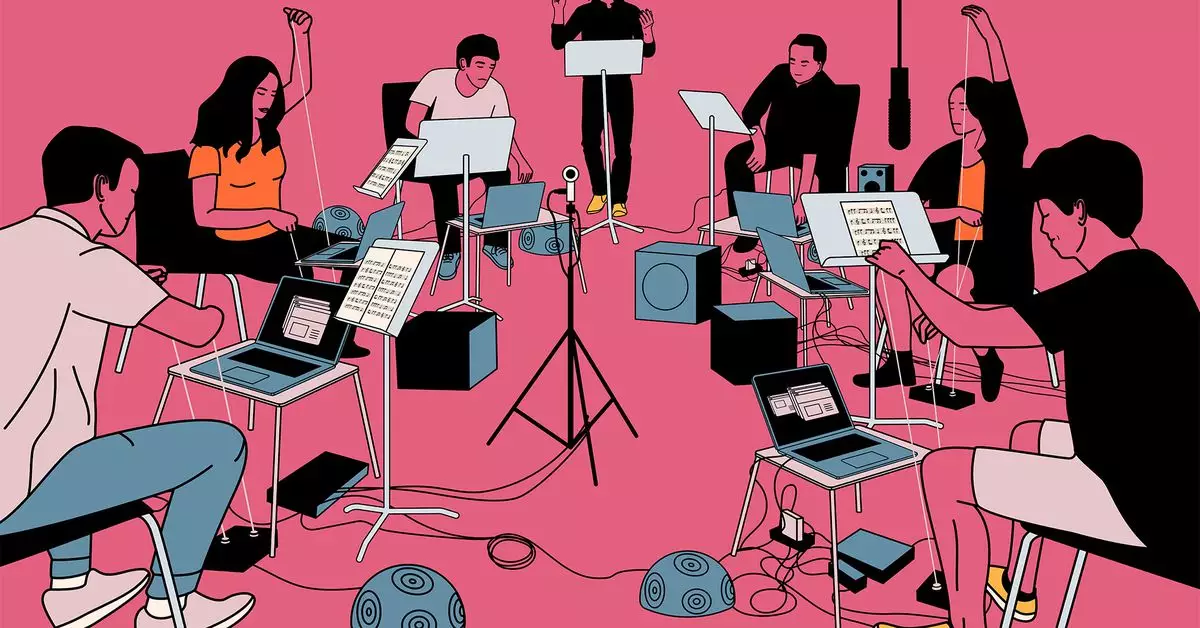Ge Wang, a distinguished associate professor at Stanford’s Center for Computer Research in Music and Acoustics, redefines the way we view the intersection of technology and music. Unlike most individuals who utilize computers mainly as tools for composition, Wang’s approach is to delve into the realm of “computer music.” This concept transcends traditional usage, focusing instead on the exploration of sound creation through computerized means. Wang’s innovative mindset positions him as a pioneer in the field, encouraging not merely a production-centric view of music but also a broader understanding of the creative process in the digital age.
In his endeavor to shape the future of music, Wang engages his students in an unconventional learning experience—one that emphasizes playful experimentation with technology over mastering complex tools. This approach reflects a cultural shift in music education, where the emphasis is put on exploration rather than conformance. By prioritizing creativity and innovation, Wang cultivates an environment where students are encouraged to push boundaries and challenge the status quo rather than simply replicate existing methods. This philosophy encourages a new generation of musicians to conceive music as a collaborative process that includes technology as a creative partner.
As artificial intelligence becomes increasingly integrated into creative processes, conversations surrounding creativity take on a new dimension. Wang’s insights touch on the crucial question of how humanity fits into a technologically advanced landscape where tools claim to enhance every facet of creativity. Are tools designed to simplify our workflows doing a disservice to artistic expression? Wang argues that the advent of AI warrants reflection on what constitutes true creativity and how we, as humans, define our roles in a world filled with automated solutions.
With the proliferation of user-friendly platforms for music composition, the conversation inevitably shifts to the implications of this accessibility. While many assert that technology democratizes music creation, Wang raises a profound question: is the goal to simply make the process easier? The danger lies in the potential homogenization of sound and artistic expression. This monolithic approach could lead to an erosion of the personal touch that typically characterizes genuine musical experiences. Wang challenges us to consider the value of struggle in the creative process—the moments that are often critical in shaping personal and unique artistic voices.
Ultimately, Wang’s discussion serves to remind us of the evolving relationship between technology and the human experience of music. In a world saturated with automated solutions, the need to maintain authenticity and emotional depth in music becomes even more paramount. As we embrace technological advances, we must also safeguard the complexities that make creativity a distinctly human endeavor. Ge Wang envisions a future where technology serves as an enabler but not a replacement—wholly integrated, yet distinctly aware of its human creators’ intrinsic value. As we navigate this digital landscape, we must prioritize the essence of what it means to connect, express, and create through music.

